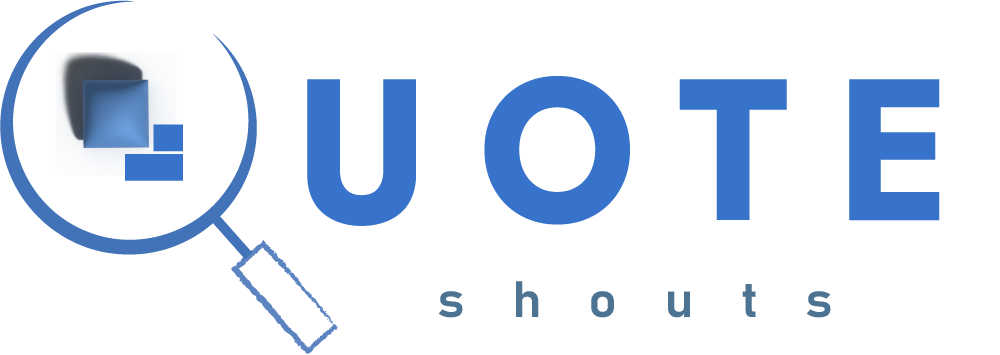Most Americans struggle to determine how an insurance setup can save them money. A Study of almost 24,000 workers at a severe Fortune one hundred company found that 61% of them selected the incorrect Insurance plan for their desires. The researchers at Carnegie Mellon University who conducted the study calculable that the ordinary worker might have saved $372 per annum by selecting a different type of health insurance plan in America.

The majority of employees in the USA selected more expensive plans, despite what quantity health care that they consumed the subsequent year, and on the average, the price of those decisions was regarding 2% of salary,” Carnegie Mellon philanthropist professor of economic science Saurabh Bhargava, WHO authored the study, told CNBC.
Quote Shouts is an American Insurance Broker and Home Service Provider and its professionals and experts suggest that American citizens choose the best Medicare health insurance package.
For free Medicare or Final Expense Health Insurance Package contact Quote Shouts (Insurance Broker and Home Service Provider)
Choosing the best and most affordable insurance plan complex process, for this many private insurance companies guides and assists US people to select the best insurance plan as per their requirement. Quote Shouts is also an insurance broker company that guides and assists US citizens to select the best insurance plan.
Health insurance could be a contract requiring an insurance company to pay some or all of an individual’s health care prices in exchange for a premium. Additionally, health insurance generally pays for medical, surgical, prescription medicine, and dental expenses incurred by the insured.
Health insurance usually covers most doctor and hospital visits, prescribed drugs, health care, and medical devices. Most insurance won’t cover elective or cosmetic procedures, beauty treatments, or off-label drug use.

Changing lifestyle: There are many reasons to own an insurance policy. The tectonic shift in our lifestyle has made us more susceptible to many health disorders. Commuting, hectic work schedules, bad eating habits, food quality, and rising pollution levels have enhanced the chance of developing health issues.
Rising Medical Prices: Medical costs have dramatically recently. So, just in case of a medical emergency, customers pay their savings, which takes a toll on their plans. Reports highlight that Indians primarily depend upon their savings when tackling health emergencies.
Penalty Prevention: If you have a Marketplace set up or alternative qualifying health coverage through the plan year 2018, you don’t need to pay the penalty that individuals without coverage should pay.
Every American citizen has choices after they buy health insurance. If people are shopping from their state’s Marketplace or an insurance agent, then they may choose between health plans organized by the level of advantages they offer:
The health insurance plan is categorized into Bronze, Silver, Gold, and Platinum. Bronze plans have the least coverage, and platinum plans have the foremost. If any citizens are lying under 30 age, they will even be ready to purchase a high-deductible, catastrophic plan.
How are the plans different? Each health insurance plan has a group share of prices for the average registered person. The details will vary across plans. Additionally, deductibles, the amount you pay before your plan picks up 100% of your health care prices, vary in keeping with the plan, generally with the smallest amount expensive carrying the highest deductible.
Platinum: covers 90% on average of your medical costs; you pay 10%
Gold: covers 80% on average of your medical expenses; you pay 20%
Silver: covers 70% on average of your medical expenses; you pay 30%
Bronze: covers 60% on average of your medical expenses; you pay 40%
Catastrophic: Catastrophic policies pay after you have reached a very high deductible ($8,150 in 2020). Catastrophic plans must also cover the first three primary care visits and preventive care for free, even if you have not yet met your deductible.
Each American citizen will additionally see insurance brands related to the care levels. Some massive national brands include Aetna, Blue Cross Blue Shield, Cigna, and Humana.
Each insurance brand might provide one or additional of these five common varieties of plans:
![]() Health maintenance organizations (HMOs)
Health maintenance organizations (HMOs)
![]() Preferred provider organizations (PPOs)
Preferred provider organizations (PPOs)
![]() Exclusive provider organizations (EPOs)
Exclusive provider organizations (EPOs)
![]() Point-of-service (POS) plans
Point-of-service (POS) plans
Take a moment to learn how these plans differ from other health insurance plans. Knowing the arranged types will assist you in choosing which one suits your budget and meet your health care needs. To find out the specifics about a brand’s specific health plan, look at its outline of advantages.

An HMO delivers all health services through a network of healthcare suppliers and facilities. With an HMO, you will have:
The least freedom to decide on your health care providers The least quantity of paperwork compared to different plans A medical aid doctor to manage your care and refer you to specialists once you would like the one that the health plan covers the care; most HMOs would require a referral before you’ll see a specialist.
Which doctors you can see? Any in your HMO’s network. If you see a doctor who isn’t within the network, you will} may need to pay the complete bill yourself. Emergency services at an out-of-network hospital should be covered at in-network rates, but non-participating doctors who treat you within the hospital will bill you.
Premium: This is often the price you pay monthly for insurance.
Deductible: Your setup might need you to pay the amount before it covers care aside from preventive care.
Copays or Coinsurance for Every Sort of Care. A copay could be a flat fee, like $15, that you pay once you get care. Coinsurance is once you pay a percentage of the costs for care, for example, 20%. These charges vary according to your plan and are counted toward your deductible.
In the PPO plan, the American citizen may have
Which doctor do we choose in PPO:
Any within the PPO’s network, you’ll be able to see out-of-network doctors, but you will pay additional.
Premium: This is often the price every insurer pays for insurance.
Deductible: Some PPOs might have a deductible. You may pay a higher deductible if you see an out-of-network doctor.
Copay or Coinsurance: A copay may be a flat fee, like $15, that the insurer pays once you get care. Coinsurance is once you pay a percentage of the costs for care, for example, 200th.
Other Costs: If your out-of-network doctor charges over others within the space, you may need to pay the balance once your insurance pays its share.

With EPO, the American citizen will have the following mentioned benefit.
Which Doctors the Insurer will be Able to See: Any within the EPO’s network; there’s no coverage for out-of-network providers.
Premium: This is often the price the insurer must pay monthly for insurance.
Deductible: Some EPOs could have a deductible.
Copay or Coinsurance: A copay may be a flat fee, like $15, that you pay once you get care. Insurance is once you pay a percentage of the costs for care, for instance, 200th.
Other Costs: If you see an out-of-network provider, you’ll get to pay the total bill.
4. Point-of-Service Plan (POS)

A POS arrangement blends the options of an HMO with a PPO. With the POS plan, you will have:
Which Doctors the Insurer will be Able to See: You can see in-network providers your medical care doctor refers you to. You’ll see out-of-network doctors, but you will pay a lot.
What does the insurer need to pay in EPO?
What are the eligibility criteria for health insurance in the USA?
Mainly there are two leading Govt sponsor health insurance services for each USA citizen, which are mentioned below
Medicare Health Insurance Eligibility Criteria & Requirement:
Generally, Medicare is accessible for people age 65 or older, younger people with disabilities, and other people with end Stage Renal Disease (permanent kidney disease requiring dialysis or transplant). Medicare has two components,
Part A (Hospital Insurance)
Part B (Medicare Insurance)
US citizens are eligible for premium-free half-A if their age 65 or older and their spouse worked and paid Medicare taxes for a minimum of 10 years. They’ll get part A at age 65 while not having to pay premiums if:
Medicaid Health Insurance Eligibility Criteria & Requirement:
Adults with income below 133% of the federal poverty line are eligible for Medicaid.
Children and pregnant ladies have higher income limits. Women who have given birth with incomes up to 208% of the federal poverty level are eligible for Medicaid coverage. This coverage will last up to twelve months after giving birth.
For Medicare Health Insurance or Final Expense, Eligibility get advice from Quote Shouts (Insurance Broker and Home Service Provider)
LIS (Low Income Subsidy) Health Insurance Eligibility Criteria & Requirement:
The Low-Income Subsidy (LIS) is a Medicare program to assist individuals with limited income and resources to pay Medicare prescription drug program costs, like premiums, deductibles, and coinsurance. The Low-Income Subsidy (LIS) is additionally called extra help.
Suppose your monthly income is up to $1,719 in 2022 ($2,309 for couples) and your assets are below specified limits. In that case, you’ll be eligible for extra additional (see the extra facilitate income and asset limit chart for details). These limits include a $20 income disregard that the social security Administration (SSA) automatically subtracts from your monthly unearned income (e.g., retirement income).
Even if your income or assets are on top of the eligibility limits, you may still qualify for further help because bound forms of payment and assets might not be counted, in addition to the $20 mentioned above.
How do you choose which health insurance plan suits an American citizen?
Here are five things to remember when selecting health coverage for you and your family. For specific information on plan components, see your plan’s outline: Examples of Prescribed Drugs, Emergency Services, Hospitalization, Prescribed Drugs, and Laboratory Services.
How do you decide which health insurance plan suits an American citizen?

Choosing a health insurance plan can be difficult. Knowing just a few things before comparing plans will make it easier.
The Four “Metal” Categories: There are four categories of health insurance plans: Bronze, Silver, Gold, and platinum. These categories show how you and your plan share prices. Plan categories don’t have anything to do with the quality of care.
Your Total Costs for Health Care: You pay a monthly bill to your insurance firm (a “premium”), even though you don’t use medical services that month. You pay out-of-pocket prices, as well as a deductible, once you get care. It’s necessary to consider both types of expenses when buying a plan.
Plan and Network Types: HMO, PPO, POS, and EPO: Some plans enable you to use almost any doctor or healthcare facility. Others limit your selections or charge you a lot if you utilize providers outside their network. For choosing a health insurance plan get advice from Quote Shouts (Insurance Broker and Home Service Provider)

QuoteShouts was founded with a defiant spirit to focus on a single purpose “Making Quotations Easy & Simple”.
Copyrights © 2022 Quote Shouts